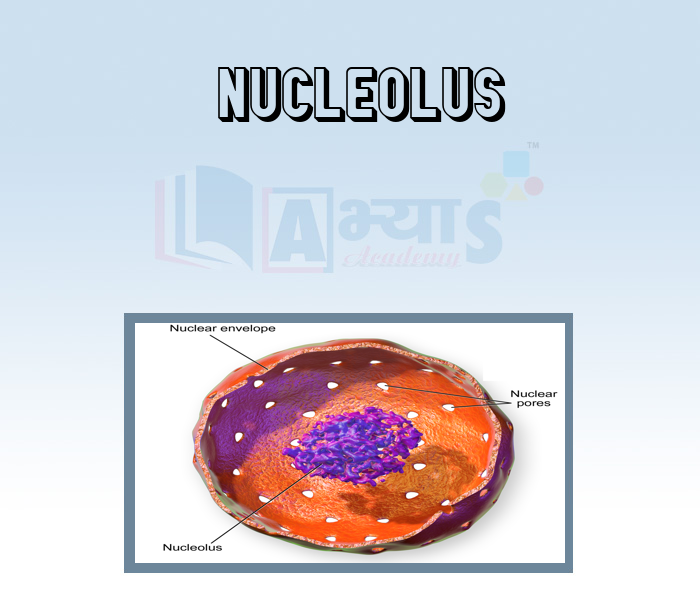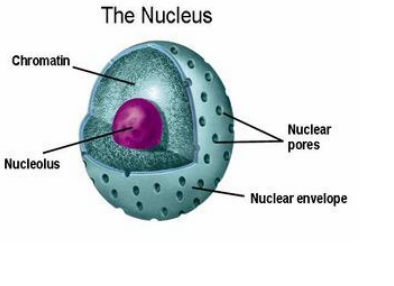Nucleolus







Nucleolus
The nucleolus is a region found with in the cell nucleus that is concerned with producing and assembling the cell's ribosomes. Following assembly, ribosomes are transported to the cell cytoplasm where they serve as the sites for protein synthesis.
Structure of Nucleolus :-
In eukaryotic cells, nucleolus has a well ordered structure with four main ultrastructural components. The components can be further identified as :
Fibrillar Centers :- It is the place where the ribosomal proteins are formed,
Granular Components :- Before ribosomes are formed, these components have r RNA that binds to ribosomal proteins.
Dense Fibrillar Components :- It has new transcribed RNA, which connects to the ribosomal proteins.
Nucleolar Vacuoles : It is present only in plant cells.
The ultrastructure of the nucleolus can be easily visualized through an electron microscope.
Function of Nucleolus :-
Ribosome formation or biogenesis of ribosomes.
Synthesis and storage of of RNA :-
It produces 70 -90 % of cellular RNA in many cells. It is source of RNA. The chromatin in nucleolus contains genes or ribosomal DNA(rDNA) for coding ribosomal RNA. Chromatin containing DNA gives rise to fibrils containing RNA. Granules containing RNA already produces ribosomes.
Protein synthesis :-
Nucleolus is also said to be involved in synthesis of proteins.

The dark spot like structure that helps to make ribosomes is called ____________ | |||
| Right Option : D | |||
| View Explanation | |||
Students / Parents Reviews [10]
It was good as the experience because as we had come here we had been improved in a such envirnment created here.Extra is taught which is beneficial for future.

Eshan Arora
8thMy experience with Abhyas is very good. I have learnt many things here like vedic maths and reasoning also. Teachers here first take our doubts and then there are assignments to verify our weak points.

Shivam Rana
7thAbhyas Methodology is very good. It is based on according to student and each child manages accordingly to its properly. Methodology has improved the abilities of students to shine them in future.

Manish Kumar
10thA marvelous experience with Abhyas. I am glad to share that my ward has achieved more than enough at the Ambala ABHYAS centre. Years have passed on and more and more he has gained. May the centre flourish and develop day by day by the grace of God.

Archit Segal
7thOne of the best institutes to develope a child interest in studies.Provides SST and English knowledge also unlike other institutes. Teachers are co operative and friendly online tests andPPT develope practical knowledge also.

Aman Kumar Shrivastava
10thI have spent a wonderful time in Abhyas academy. It has made my reasoning more apt, English more stronger and Maths an interesting subject for me. It has given me a habbit of self studying

Yatharthi Sharma
10thIt has a great methodology. Students here can get analysis to their test quickly.We can learn easily through PPTs and the testing methods are good. We know that where we have to practice

Barkha Arora
10thAbhyas is a complete education Institute. Here extreme care is taken by teacher with the help of regular exam. Extra classes also conducted by the institute, if the student is weak.

Om Umang
10thMy experience with Abhyas academy is very good. I did not think that my every subject coming here will be so strong. The main thing is that the online tests had made me learn here more things.

Hiya Gupta
8thIt was a good experience with Abhyas Academy. I even faced problems in starting but slowly and steadily overcomed. Especially reasoning classes helped me a lot.
